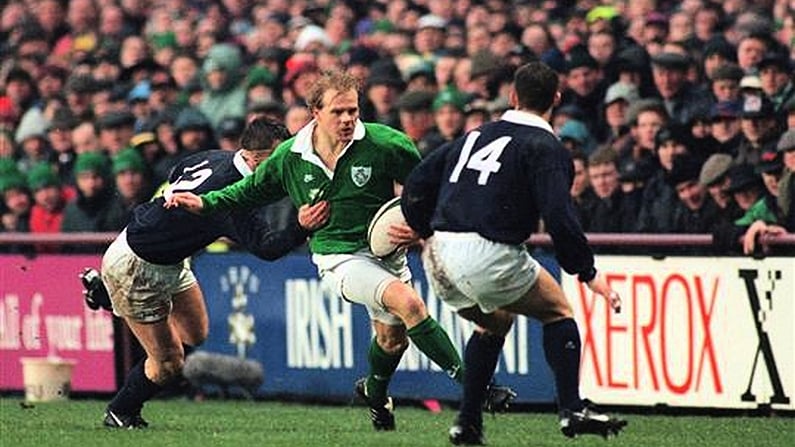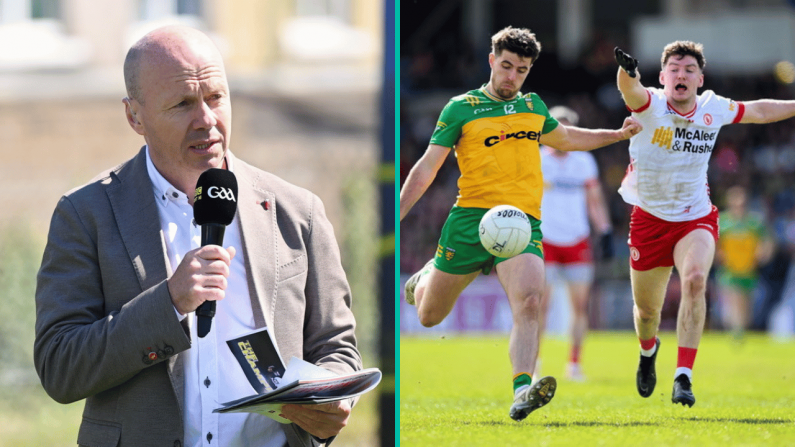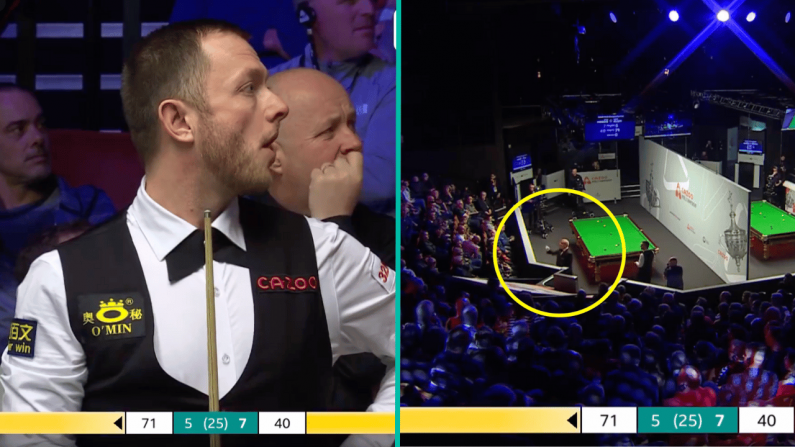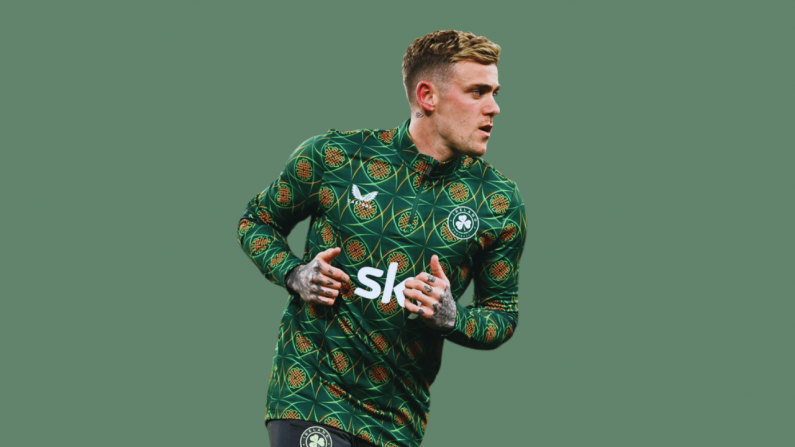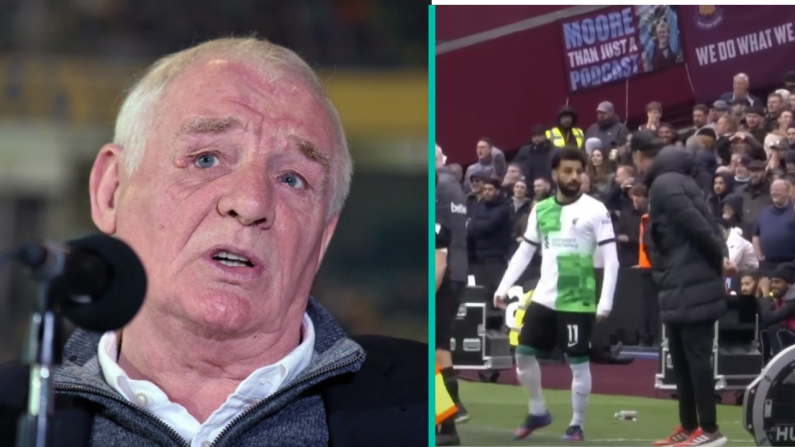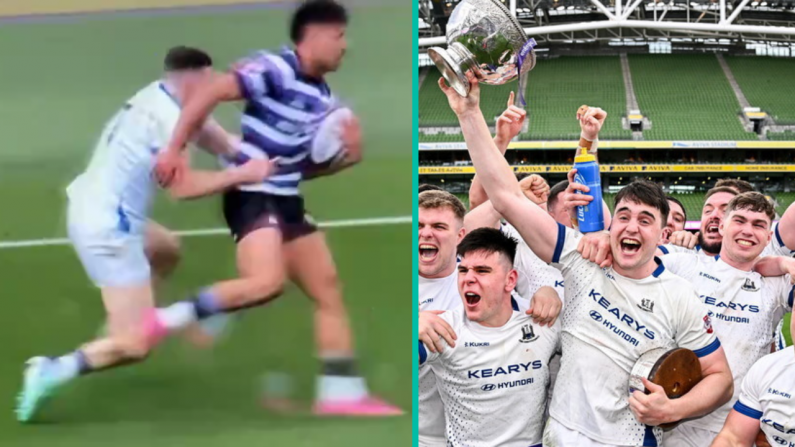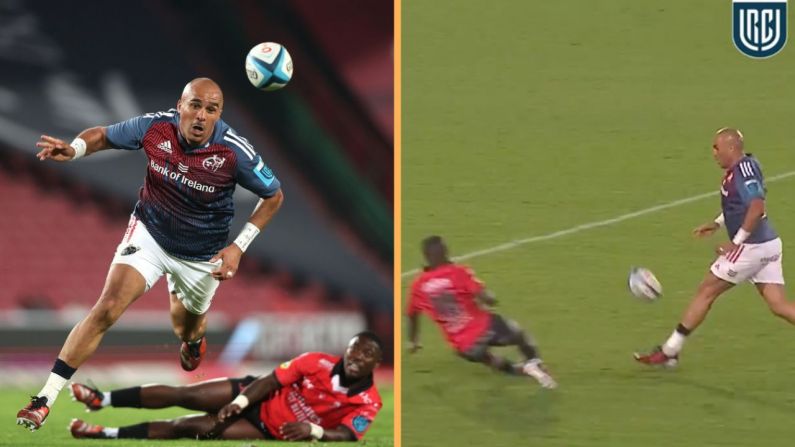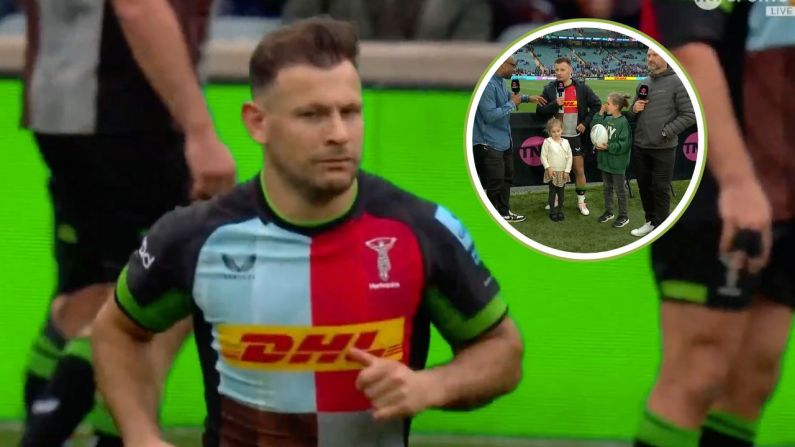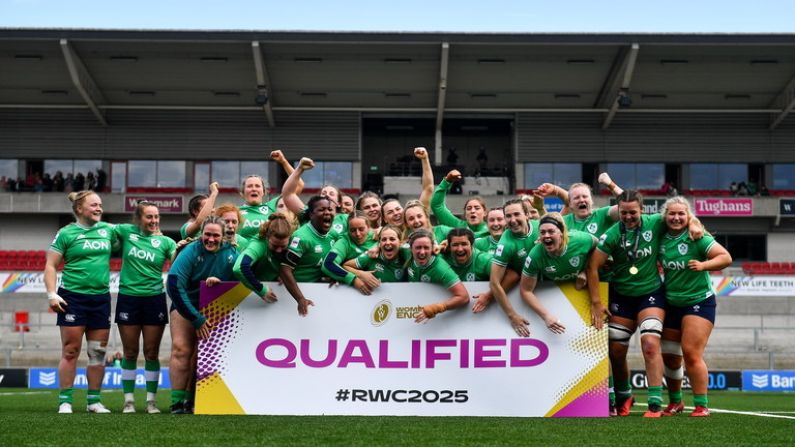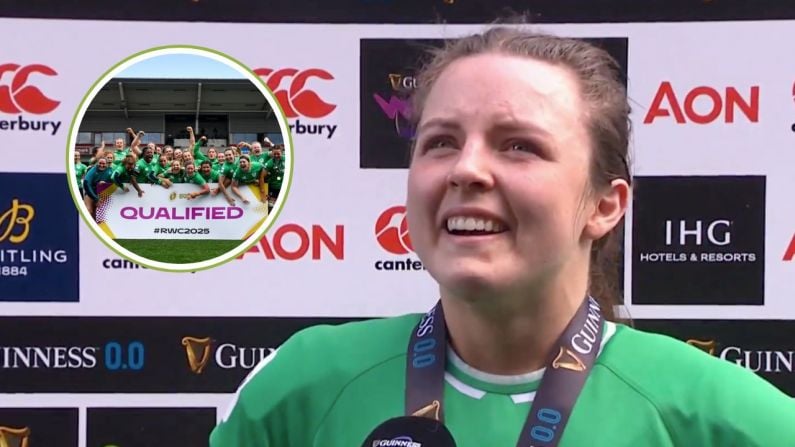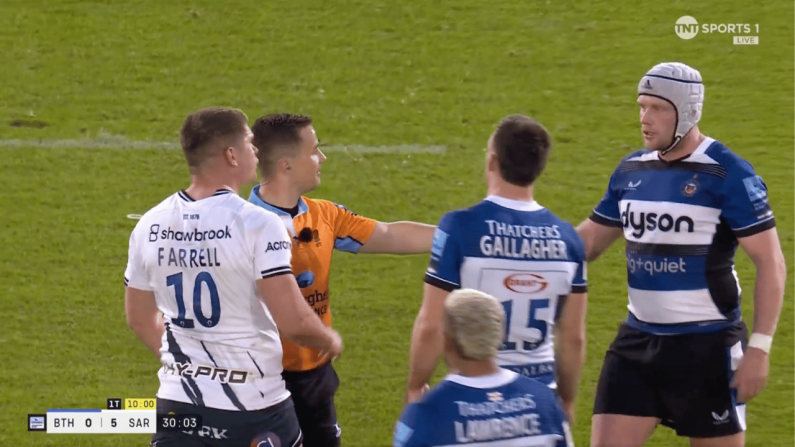Rugby union went 'open' on 26 August 1995, aka, the ban on professionalism was lifted. The decision had been coming for some time but the Northern Hemisphere, in particular, was shocked by the abruptness of the declaration. They believed there would some kind of transitional period to allow the old boys network adjust to the new reality and get their affairs in order.
The southern hemisphere was already hurtling towards professionalism with unholy abandon. Even prior to the South African World Cup in May, the word had been that Rupert Murdoch was about to finance a breakaway professional rugby league in Australia
The hidebound northern hemisphere unions were deeply hostile to professionalism. And none was more hostile than Ireland and the IRFU.
The IRFU and the WRU had distinguished themselves in the 1980s by opposing the establishment of the Rugby World Cup, the former believing it would somehow hasten professionalism.
Before the 1987 World Cup in New Zealand, they had even discouraged team training sessions because they didn't want the Irish players taking the competition too seriously. In the end, team captain Donal Lenihan and a couple of others organised their own sessions in secret before the team flew out.
On the eve of the 1995 World Cup, by which point the famous dogs on the street had already been briefed on what was coming down the tracks, the IRFU released a lofty statement reiterating their deep commitment to the game's amateur status. Rugby, they hoped and believed, would continue to be a game played by men in their leisure time.
The northern unions were heartbroken by the events of August 1995. Irish rugby was very ill-prepared for the change, and there was a mass exodus of players between 1996 and 1998.
The national team, not exactly in rude good health at that point, managed to plump new, fresh depths in the early years of the professional game.
It wasn't until the end of the decade that the IRFU finally got a handle on things and a host of players returned to Dublin and Cork and Limerick.
Ireland played their first game of the professional era against Fiji in Lansdowne Road in November 1995.
A triumphant opener. Ireland won 44-8 with Franno, Geoghegan, Jim Staples, Paddy Johns and both Wallace brothers going over for tries. It was expected victory but wins weren't so plentiful that you couldn't be at least a bit grateful for it. By the end of Murray Kidd's short and best forgotten reign, Ireland had successful proven that they could lose at home to Pacific Island nations, when the Samoans came to Landsdowne and won well.
The money was poor. The players' futures were uncertain. Irish rugby was at a crossroads, a crossroads at which it was to loiter for at least a couple of years while its players headed in the direction pointing for 'England'.
Here is the Irish team that played Fiji that day and what's become of them since.
Discovering what past rugby players are up to these days is easier than other sports as most have carefully maintained and nicely padded out Linkedin accounts.
15. Jim Staples
One of the Exiles who played initially for Connacht. He made his debut for the Irish team in 1991, a season in which Ireland played some fluid attacking rugby but failed to win a match, losing three games narrowly and drawing in Cardiff.
A creative full-back greatly admired by his former provincial coach George Hook, he played for Ireland between 1991 and 1997.
He currently works in the City of London as a director with Barclays Bank.
14. Richard Wallace
Wallace has the honour of being the first Munster player to score in the Heineken Cup when he scored the opening try against Swansea. Played 29 times on the wing for Ireland between 1991 and 1998.
He scored Ireland's only two tries in the 1992 Five Nations, possibly Ireland's worst performance in the history of the competition.
He signed for Saracens in the summer of 1996, but as with many players contracted to English rugby, was still able to return to play European games for Munster and played in the 1996/97 season. He eventually finished his career with Saracens.
He currently works as a pilot with Cityjet.
https://youtu.be/swOjluJLGZg?t=5m26s
13. Maurice Field
The Ulster centre made his debut that glorious day in Twickenham in 1994. Was employed as a decoy runner for Simon Geoghegan's try.
Thereafter, he enjoyed the typical 1990s Ireland career, winning a few games against Wales and losing to everybody else before his seventeenth and final cap in a heavy defeat in Murrayfield in the 1997 Five Nations.
Worked in the fire service in his playing days. A rugby pundit with BBC Northern Ireland.
12. Jonathan Bell
Won a Heineken Cup with Ulster in 1999 and 36 caps for Ireland between 1994 and 2003. A battering ram type centre, Bell played through tough times in the late 1990s, generally falling out of favour and playing for the national team only sporadically in the early 2000s.
Upon retiring, he worked as a PE teached in Campbell College in Belfast. He left to become player development coach at Ulster, subsequently taking on defence coach brief with the first team. In 2015, he left to become assistant coach at Gloucester.
11. Simon Geoghegan
Only played for Ireland for five years and played through one of the bleakest eras in Irish rugby history. Still managed to become of the most celebrated and heavily mythologsied players in Irish rugby history. Perhaps it's because he played through such a bleak era that he is celebrated. It lends to his performances that irresistible air of heroic martyrdom. He held a stubborn belief in the worth of scoring tries at a time when Irish rugby had stopped believing in such things.
Scored one of Ireland's most often replayed tries, the winner in Twickenham in '94. Ran in a few other lovely ones too, in Cardiff in '91, against England in Lansdowne in '91, and a try against France in '95.
A solicitor in his playing days, he is now a partner in the Rosling King law firm based in the City of London. He specialises in real estate transactions.
10. Paul Burke
London born outhalf, Burke played for Cork Constitution and Munster for two seasons, helping them to the inter-provincial title in 1995, before taking off to Bristol. He later played four seasons for Harlequins before re-joining Munster in 2003 as cover for Ronan O'Gara. He made his international debut against England in the 1995 Five Nations and travelled to that year's World Cup.
After years with Leicester, he returned to his educational alma matter at Epsom College, where he now works as Director of Rugby.
9. Chris Saverimutto
Far from the first or indeed the last foreign-born player to be capped for Ireland. But for some reason, the three-time capped Saverimutto is usually cited as somehow the most foreign of all foreign-born Irish rugby players. Perhaps on account of his name, which was by far the most memorable thing about him.
Usually placed at No. 1 on 'players you forgot existed' lists, thereby ensuring that no one actually forgets that he existed.
He played against Fiji, USA and in the 1996 Five Nations opener against Scotland. Played for Sale until 2000.
His works as a chartered surveyor in Liverpool.
1. Nick Popplewell
Ireland's first professional player. He signed for Newcastle in the autumn of 1995. Popplewell was the only Irish player to play test rugby in the Lions tour of New Zealand in 1993. Ned Van Esbeck hit the roof when he saw the team selection.
Ireland had embarked on a long and very grim losing streak which began with their final two games of the 1991 Rugby World Cup, spanned the entire calendar year of 1992, and continued into the opening two games of the 1993 Five Nations.
When the losing streak ended in Cardiff against Wales in week 3 of the '93 Five Nations, Popplewell was very emotional. Played his last game for Ireland in Paris in 1998.
He has worked as an estate agent with Sherry Fitzgerald for the last fifteen years. 'Flogging houses in Wexford' as he told us.
2. Terry Kingston
Kingston captained Munster on numerous occasions between 1984 and 1996, most famously during the victory over Australia in 1992.
The Dolphin man earned 30 caps for Ireland between 1987 and 1996, tussling with Ulster's Steve Smith for the hooker spot until 1993 when Kingston nailed down the role. He featured in the most unlikely pair of back-to-back victories ever recorded against England in 1993 and 94. He played in three World Cups and his final match for Ireland came in a typically unforgiving Parc des Princes mauling in 1996.
He works as a business coach in Cork.
3. Paul Wallace
A Munster man exiled in Dublin, Wallace opted to play for Leinster during the 1995/96 season. He had been playing for Blackrock since 1993 and switched allegiance to Leinster in August '95 for "business and domestic reasons." He made his debut for Munster in 1993 but was unable to make the side which won the Inter-provincial side in 1994/95 ahead of John 'Paco' Fitzgerald and Peter Clohessy (the first time Ulster hadn't won the interpros in about a decade).
Wallace left for Saracens in June 1996 on a three year contract. In spite of this, he still togged out for Leinster in their 25 -23 defeat of Pau in Donnybrook in the 1996/97 Heineken Cup clash.
After leaving Saracens in 2001, he returned to Leinster. In his second spell with the province, he usually played second fiddle to Emmet Byrne, but he started on the team that won the inaugural Celtic League Final against Munster in December 2001. He retired in 2003.
Wallace had a distinguished international career, playing 45 times for Ireland between 1995 and 2002. Internationally, he is best known for being one of the stars of the memorable 1997 Lions tour of South Africa.
A rugby pundit with Sky Sports and the Last Word, he has worked for many years in the commercial property sector.
4. Gabriel Fulcher
The Cork Constitution lock played 20 times for Ireland between 1994 and 1998. Highlights include scoring a try against Wales in the '96 Five Nations. Like a raft of Irish players in both Munster and Leinster, he left for Clive Woodward's London Irish in 1996, staying for two seasons. He returned to Ireland in 1998, but not to Munster. He played for Leinster between 98 and 2000, captaining them during the 99/00 season.
Works as a coach, previously as head coach of the Leinster U20s. He is a former Director of Rugby at both Belvedere and St. Mary's. Currently coaches in British Columbia in Canada.
5. Neil Francis
Notwithstanding his nighttime habit of gorging on KFC, Francis greatly impressed observers with his appearances in the 1987 World Cup. The rewards were swift in those years. He was invited down to Australia to play a season with Manly ('effectively, they paid me', as he delicately put it later).
As Ireland stumbled repeatedly over the next few years, Franno acquired a reputation as a kind of Dimitar Berbatov of Irish forward play. Exasperated pundits pondered how mighty he be were he more inclined to bother his hole.
He played in three World Cups, earning widespread praise for his performance against Australia in the 91 quarter-final.
A long time newspaper columnist, first with the Sunday Tribune and then with the Irish Independent. He won Sports Columnist of the Year in 2013. He works for Renault.
6. Jeremy Davidson
Jeremy Davidon's career was blighted by injury. His best performances came for the Lions. He was player of the tournament in the successful 1997 tour, his finest hour. He played 32 times for Ireland, much less than he should have done.
Currently the coach of Aurillac in the French Pro D2. Credited with working wonders with the team, he took them to the brink of promotion in the 2015-16 season. They just missed out in a playoff against Bayonne.
7. David Corkery
Corkery was flying in 1995 and earned the accolade of Ireland's 'Player of the Tournament' at the 1995 World Cup. He won 27 caps for Ireland between 1994 and 1999. He left for Bristol as part of the big exodus of 1996, when it looked like Irish rugby was going to lose all of its players to the Guinness Premiership. He played there for two seasons before returning to Munster. He played in the All-Ireland League for Cork Constitution and (post-Bristol) Terenure.
He spent five years as a development officer with the IRFU. Earlier this year, at the age of 41, he played two games for Sunday's Well in the AIL, and was on the winning side in both.
He spoke to Vincent Hogan recently about his battle with depression both during and after his rugby career.
He works a Brand manager for Affidea, a diagnostic healthcare provider.
8. Paddy Johns
A Willie John lookalike under a scrum cap, Paddy Johns's career spanned the entire decade of the 1990s. He made his debut in a November game against Argentina in 1990 in which Ireland squeezed home by two points.
His Five Nations debut would only arrive in 1993, Ireland's most successful championship of an otherwise miserable decade.
Mick Galwey claims to have accidentally broken his nose while swinging for Kyran Bracken during Ireland's one-point win over England in 1994, though this story may have been embellished for the after-dinner circuit.
He assumed the captaincy in 1998, holding the role for ten games. He was captain during the shockingly violent tour of South Africa in 1998, during which Donal Lenihan the Irish team were treated like dirt by their hosts. They retaliated on the pitch if not on the scoreboard.
While Johns played during a grim period in Irish rugby, Johns hung around long enough to see the weather break. His penultimate game came against France in the Stade de France in 2000, when he was introduced as a substitute.
A dentist in his playing days, Johns still works as a dental surgeon. Heavily involved in charity.

